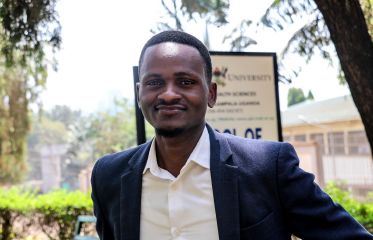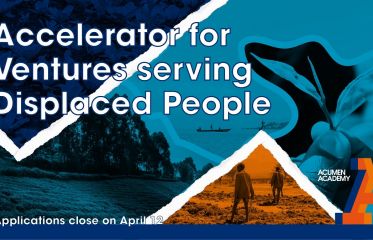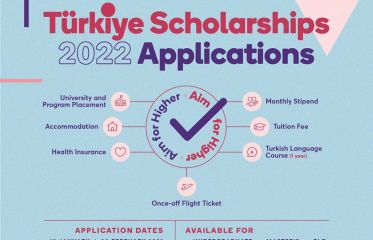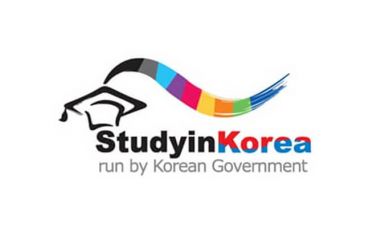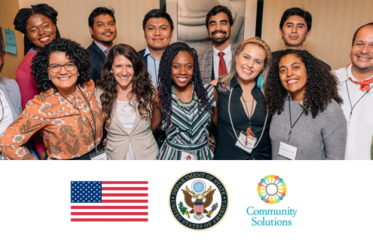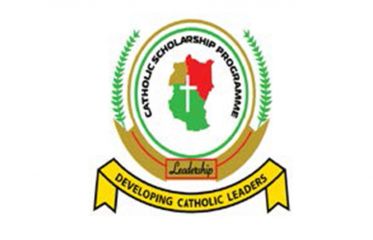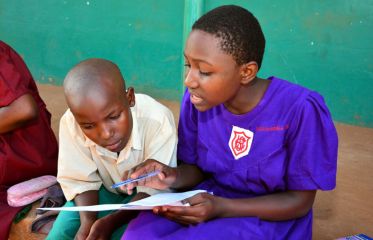Breaking News
- Flexible Remote Work Opportunity for University Students: Earn $100–$250 Per Month ...Read More
- Ministry of Education and Sports Azerbaijan Government Scholarships For 2025-2026 Academic Year ...Read More
- Government Sponsorship Undergraduate Admission Lists 2025-26 for Makerere University ...Read More
- Ministry of Education And Sports: Egyptian Government Scholarships 2025-2026 Academic Year ...Read More
- Ground Breaker Full Scholarship for girls to study Software Engineering 2025 July Intake ...Read More
- Tony Elumelu Foundation Entrepreneurship Programme (TEEP) 2025 for young African Entrepreneurs ...Read More
- DESIGNING FUTURES 2050 International Design Competition 2025 (€15,000 prize) ...Read More
- Ground Breaker Full time Scholarship for girls to study Software Engineering 2025 Intake ...Read More
- Ministry of Education And Sports Algerian Vocational Training Scholarships for 2024-2025 AY ...Read More
- Ministry of Education and Sports Advert for the Algerian Government Scholarships for 2024-2025 ...Read More
Clergy
Conduct religious worship and perform other spiritual functions associated with beliefs and practices of religious faith or denomination. Provide spiritual and moral guidance and assistance to members.
Add to FavouritesConduct religious worship and perform other spiritual functions associated with beliefs and practices of religious faith or denomination. Provide spiritual and moral guidance and assistance to members.
Also Known As: Catholic Priest, Children's Minister, Confessor, Congregational Care Pastor, Minister, Missionary Coordinator, Pastor, Priest, Rector.
Daily Activities / Routine Tasks.
The clergy perform the duties listed below
1. Pray and promote spirituality 2. Read from sacred texts such as the Bible
3. Prepare and deliver sermons or other talks.
4. Organize and lead regular religious services.
5. Plan or lead religious education programs.
6. Instruct people who seek conversion to a particular faith.
7. Counsel individuals or groups concerning their spiritual, emotional, or personal needs.
8. Share information about religious issues by writing articles, giving speeches, or teaching.
9. Perform administrative duties, such as overseeing building management, ordering supplies, contracting for services or repairs, or supervising the work of staff members or volunteers.
10. Conduct special ceremonies, such as weddings, funerals, or confirmations.
Key Knowledge Areas
Below are the key knowledge areas for someone who wants to become part of the Clergy
Philosophy and Theology — Knowledge of different philosophical systems and religions. This includes their basic principles, values, ethics, ways of thinking, customs, practices, and their impact on human culture.
English Language — Knowledge of the structure and content of the English language including the meaning and spelling of words, rules of composition, and grammar.
Therapy and Counseling — Knowledge of principles, methods, and procedures for diagnosis, treatment, and rehabilitation of physical and mental dysfunctions, and for career counseling and guidance.
Psychology — Knowledge of human behavior and performance; individual differences in ability, personality, and interests; learning and motivation; psychological research methods; and the assessment and treatment of behavioral and affective disorders.
Education and Training — Knowledge of principles and methods for curriculum and training design, teaching and instruction for individuals and groups, and the measurement of training effects.
Administration and Management — Knowledge of business and management principles involved in strategic planning, resource allocation, human resources modeling, leadership technique, production methods, and coordination of people and resources.
Sociology and Anthropology — Knowledge of group behavior and dynamics, societal trends and influences, human migrations, ethnicity, cultures and their history and origins.
History and Archeology — Knowledge of historical events and their causes, indicators, and effects on civilizations and cultures.
Customer and Personal Service — Knowledge of principles and processes for providing customer and personal services. This includes customer needs assessment, meeting quality standards for services, and evaluation of customer satisfaction.
Personnel and Human Resources — Knowledge of principles and procedures for personnel recruitment, selection, training, compensation and benefits, labor relations and negotiation, and personnel information systems.
Communications and Media — Knowledge of media production, communication, and dissemination techniques and methods. This includes alternative ways to inform and entertain via written, oral, and visual media.
Top Skills
These skills are very important for one to thrive as a Clergy
Service Orientation — Actively looking for ways to help people.
Reading Comprehension — Understanding written sentences and paragraphs in work related documents.
Active Listening — Giving full attention to what other people are saying, taking time to understand the points being made, asking questions as appropriate, and not interrupting at inappropriate times.
Time Management — Managing one's own time and the time of others.
Persuasion — Persuading others to change their minds or behavior.
Writing — Communicating effectively in writing as appropriate for the needs of the audience.
Monitoring — Monitoring/Assessing performance of yourself, other individuals, or organizations to make improvements or take corrective action.
Learning Strategies — Selecting and using training/instructional methods and procedures appropriate for the situation when learning or teaching new things.
Negotiation — Bringing others together and trying to reconcile differences.
Complex Problem Solving — Identifying complex problems and reviewing related information to develop and evaluate options and implement solutions.


























